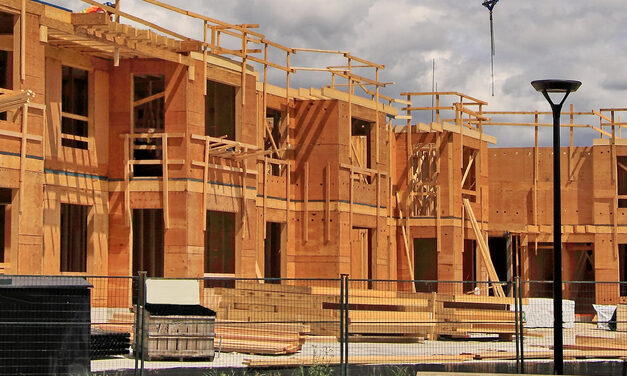Executive summary
The Canadian real estate sector is navigating a period of significant tax reforms, aimed at curbing speculative investments, promoting housing affordability, and encouraging sustainable construction. Real estate stakeholders should be mindful of pivotal changes that will impact tax compliance obligations.
Key changes include an increased capital gains inclusion rate, a new withholding tax for non-residents, and the introduction of the Underused Housing Tax (UHT). Recent property flipping rules and limitations on short-term rental deductions may impact investment decisions, while new GST/HST rebates are set to offer substantial financial relief for builders.
This article delves into these critical tax measures, providing strategic insights to help real estate clients navigate the evolving landscape while staying ahead of expected changes in 2025.
The Canadian tax landscape for the Real Estate (RE) sector has experienced significant shifts, reflecting targeted measures to address skyrocketing housing prices, discourage speculative investment, promote housing affordability, and support sustainable construction. RE clients must prepare for critical tax changes and new compliance requirements that could impact their 2024 filings.
The 2024 tax amendments bring both challenges and opportunities for RE clients. While these changes pose compliance challenges, they also present opportunities for those who adapt proactively. By understanding the key changes and implementing strategic adjustments, stakeholders can navigate the complexities of the new tax landscape while optimizing their financial outcomes.
This article outlines key tax measures introduced in 2024 that affect middle-market RE clients, recent legislative amendments, and practical strategies to navigate these changes effectively.
Changes to the capital gains inclusion rate
Budget 2024 introduced several tax measures aimed at enhancing access to affordable housing for Canadians. One of the most notable amendments is the increase in the capital gains inclusion rate (CGIR) from 50% to 66.67%, effective June 25, 2024, resulting in higher tax liability for the taxpayers disposing of the assets on or after the effective date.
In addition, w.e.f. Jan. 1, 2025, non-residents disposing of their taxable Canadian property (TCP) will face an increased withholding tax rate of 35%, up from the current rate of 25%.
Taxpayers who have disposed of the assets after the effective date must be prepared to pay increased taxes when filing their income tax returns next year. In addition, non-residents planning to sell TCP must consider completing the transaction before the end of 2024 to benefit from the lower withholding tax rate.
Underused housing tax (UHT)
The UHT targets vacant and underutilized residential properties (RPs) held by non-residents and/or non-Canadian entities. UHT requires affected owners to file a return annually and pay a one per cent tax on the property value if the affected owner doesn’t qualify for an exemption. The 2023 federal economic statement exempted unitized (“condominiumized”) apartment buildings from the UHT regime. In addition, starting in the 2024 tax year, individuals or spouses can claim an exemption for only one vacation property under the UHT.
Taxpayers with multiple vacation properties should evaluate their RE holdings to assess which property is most beneficial to claim under the exemption. Furthermore, taxpayers need to recognize that the UHT is a federal tax, unaffected by provincial or municipal taxes. If their property is also subject to local vacancy taxes, they could incur additional liabilities.
Property flipping rules
Effective from Jan. 1, 2023, federal property flipping rules tax gains from selling RPs held for less than 365 days as business income, disqualifying them from taking advantage of the principal residence exemption (PRE) or the lower CGIR in comparison to the marginal tax rate. Sales arising due to life events such as death, marital breakdown or disability may be exempt from such tax implications, but intent remains crucial.
Therefore, the sale of RP due to financial hardship may be exempt from the property flipping rule, but the profits from the disposition may still be classified as business income rather than a capital gain if the property was acquired with the intent to resell for profit, regardless of whether the sale was driven by financial hardship or insolvency.
British Columbia’s home flipping tax (BCHFT)
Similarly to the federal property flipping rules, effective Jan. 1, 2025, BCHFT imposes a separate tax on RPs sold within 730 days of purchase. The BCHFT imposes a 20% tax on sales within the first year, decreasing thereafter, and requires a distinct return to be filed within 90 days of sale.
Taxpayers in BC must evaluate the implications of the BCHFT and federal rules before selling RPs. Taxpayers must consider delaying the sales beyond the two-year threshold to avoid the higher taxes altogether.
Denial of deductions for short-term rentals (STRs)
In an effort to address the housing crisis by disincentivizing STRs and encouraging long-term rentals, deductions for expenses incurred on non-compliant STRs, such as Airbnbs, are denied effective Jan. 1, 2024, if they violate local regulations. Non-compliant STRs are defined as properties rented for less than 90 days that either:
- are located in regions where STRs are not permitted or
- do not meet local registration, licensing or permit requirements.
Taxpayers must ensure compliance with all local regulations to remain eligible to claim for tax deductions related to STRs. For this, the taxpayers may need to modify the rental durations or terms of the rental agreement. In addition, taxpayers planning to sell the properties used for STRs must consider the revised CGIR and any GST/HST implications on the sale. Taxpayers must also keep records of licenses, permits and other relevant documents to substantiate tax positions.
GST/HST new residential rental property (NRRP) Rebate
Effective 2024, the GST/HST NRRP rebate offers landlords and builders full GST relief on qualifying residential rental properties, especially purpose-built rental housing (PBRH). Projects with a fair market value (FMV) under $450,000 are eligible, with a full rebate available for projects having an FMV below $350,000. However, for PBRH projects starting between Sept. 14, 2023, and Dec. 31, 2030, and completed by Dec. 31, 2035, the GST rebate will be 100% irrespective of the FMV, thereby eliminating GST on these projects.
The rebate offers financial assistance to builders of new rental housing. To maximize rebates and minimize self-assessed GST/HST liabilities, builders must maintain accurate records, seek professional appraisals, and comply with the Canada Revenue Agency (CRA) guidelines. Builders required to self-assess and pay GST/HST based on the FMV of the property can now back out GST/HST from the appraised FMV, reducing both the self-assessed GST/HST and any related rebates.
Excessive interest and financing expenses limitation (EIFEL)
The EIFEL rules limit the amount of interest and financing expenses that can be deducted for tax purposes, aiming to prevent excessive deductions that reduce taxable income. Middle-market RE taxpayers should assess the impact of EIFEL rules on their investment structures to avoid denied interest expenses or penalties. Areas of focus may be the use of partnerships in RE development or investment, non-residents with Canadian RE, and sector-specific exemptions.
Foreign accrual business income (FABI)
The new FABI and FABI surplus election regime proposes tax-saving opportunities for Canadians earning RE income through foreign subsidiaries, possibly leading to a neutralization of tax that otherwise would be recognized in Canada on a current basis, and on the repatriation of profits to Canadian shareholders. Although the rules are not enacted yet, middle-market taxpayers with RE operations abroad should be mindful of these changes, and the deadline to file various elections, which could increase deductions against both foreign accrual property income and foreign dividends reported in prior tax years.
Disclosure requirement for RE trusts
Enhanced disclosure requirements for RE trusts now mandate detailed reporting of income distributions and beneficiary information. While initial rules broadened T3 filing obligations for trusts, CRA has since narrowed their scope through proposed amendments issued on Aug. 12, 2024.
From challenges to opportunities
Initiatives like the UHT, property flipping rules and STR deductions, combined with tax relief for new rentals and Budget 2024 strategies, are vital for taxpayers. However, ongoing adaptation and strong partnerships between government and private sectors are crucial to translating these measures into meaningful results for Canadians. Stakeholders must remain informed to navigate and contribute effectively.
Looking ahead in 2025
As we step into 2025, the RE sector is poised to navigate further changes in the tax landscape. The anticipated rollout of green incentives for energy-efficient buildings, discussions around potential adjustments to capital gains inclusion rates and targeted policies addressing housing affordability could shape RE transactions and investment strategies. Additionally, increasing penalties for non-compliance with federal and provincial reporting obligations highlight the need for meticulous record-keeping and proactive tax planning. As evolving regulations will likely continue to influence planning opportunities and compliance obligations in this dynamic sector, taxpayers must take timely action.
This article was written by Chetna Thapar, Nicole Lechter, Mamtha Shree, Neil Chander and originally appeared on 2024-12-02. Reprinted with permission from RSM Canada LLP.
© 2024 RSM Canada LLP. All rights reserved. https://rsmcanada.com/insights/services/business-tax-insights/key-tax-measures-in-2024-for-the-real-estate-middle-market.html
RSM Canada LLP is a limited liability partnership that provides public accounting services and is the Canadian member firm of RSM International, a global network of independent assurance, tax and consulting firms. RSM Canada Consulting LP is a limited partnership that provides consulting services and is an affiliate of RSM US LLP, a member firm of RSM International. The member firms of RSM International collaborate to provide services to global clients but are separate and distinct legal entities that cannot obligate each other. Each member firm is responsible only for its own acts and omissions, and not those of any other party. Visit rsmcanada.com/about for more information regarding RSM Canada and RSM International.
The information contained herein is general in nature and based on authorities that are subject to change. RSM Canada LLP guarantees neither the accuracy nor completeness of any information and is not responsible for any errors or omissions, or for results obtained by others as a result of reliance upon such information. RSM Canada LLP assumes no obligation to inform the reader of any changes in tax laws or other factors that could affect information contained herein. This publication does not, and is not intended to, provide legal, tax or accounting advice, and readers should consult their tax advisors concerning the application of tax laws to their particular situations. This analysis is not tax advice and is not intended or written to be used, and cannot be used, for purposes of avoiding tax penalties that may be imposed on any taxpayer.










